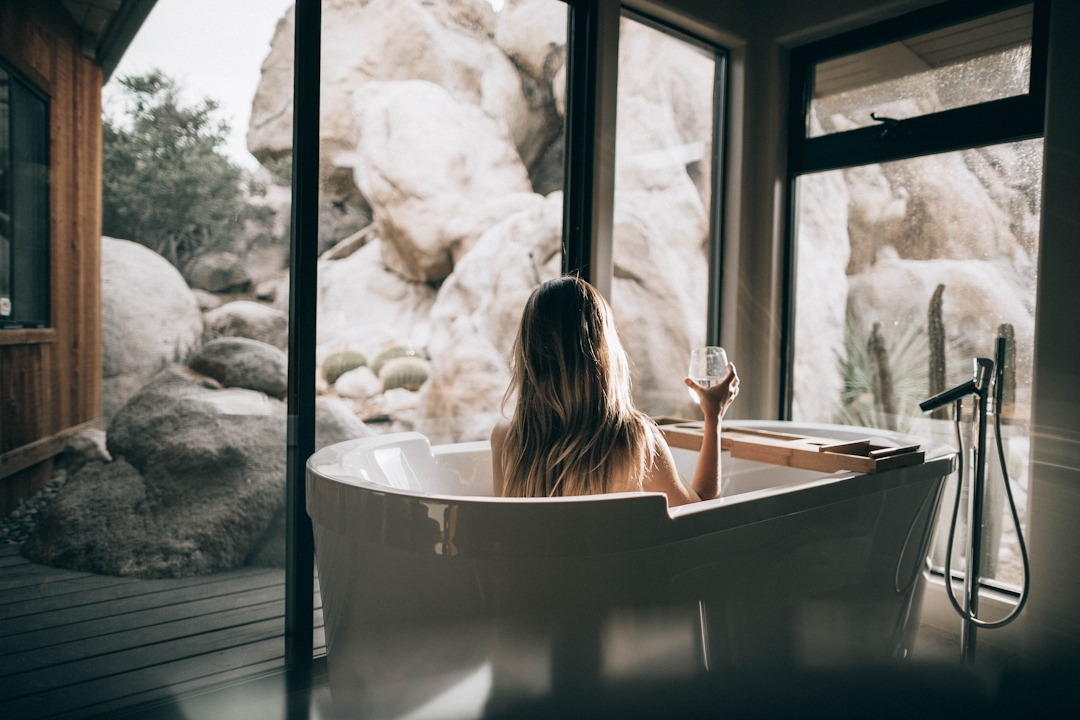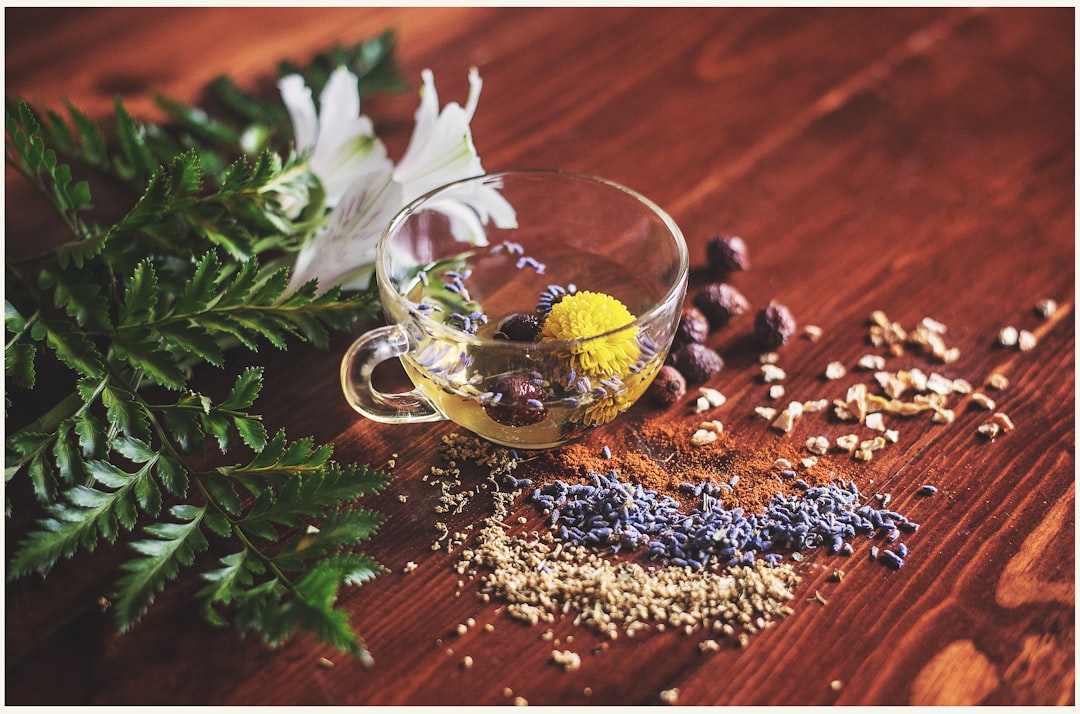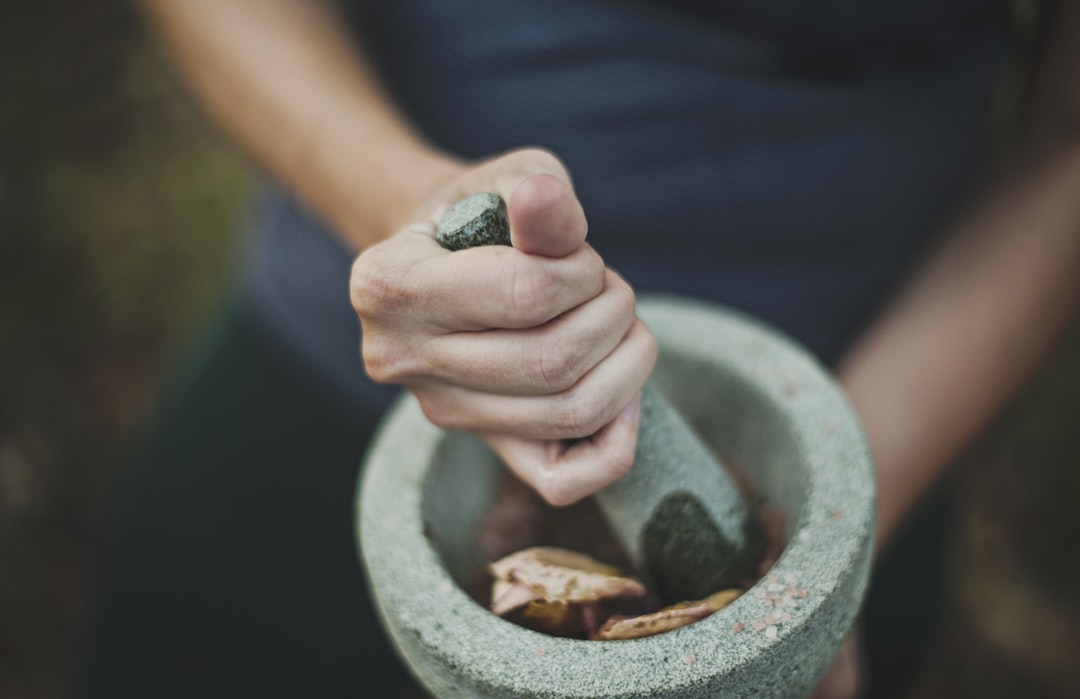
Discover Aromatherapy: Essential Oils for Holistic Healing and Relaxation
Explore how essential oils can enhance well-being and relaxation through the power of aromatherapy in holistic healing.

Audio Summary
Key Takeaways
- Aromatherapy harnesses essential oils for holistic healing and relaxation
- Essential oils interact with the body through inhalation and topical application to promote well-being
- Aromatherapy offers benefits such as stress relief, improved sleep, and enhanced mood
- Proper application methods and safety precautions are crucial for effective and safe use of essential oils
- Aromatherapy serves as a complementary approach to traditional healthcare for overall wellness
The Power of Aromatherapy: Nature's Healing Scents
Aromatherapy, an ancient holistic healing practice with modern appeal, harnesses the power of essential oils to promote relaxation and wellness. This natural approach to health has gained popularity as people seek alternatives to conventional medicine for managing stress and improving overall well-being.
Essential oils, extracted from various plants, flowers, and herbs, offer a unique blend of therapeutic properties that can influence both physical and emotional states. As we explore aromatherapy's benefits, we'll discover how these concentrated botanical essences can be integrated into daily routines to support health and create balance.
Whether you're new to using essential oils or looking to deepen your aromatherapy knowledge, this journey into the aromatic realm promises to reveal the potential of nature's healing scents. From stress relief to improved sleep, aromatherapy offers a wide range of natural remedies for common ailments, making it an increasingly popular choice for those seeking holistic wellness solutions.

Understanding Aromatherapy: Nature's Healing Essence
Aromatherapy is a holistic healing practice that utilizes essential oils to promote physical and emotional well-being. These concentrated plant extracts have been used for centuries across cultures for their therapeutic properties. Essential oils are derived from various plant parts, including flowers, leaves, roots, and bark, through methods like steam distillation or cold pressing. Each oil possesses a unique chemical composition contributing to its specific aroma and potential health benefits.
How Aromatherapy Works
When inhaled, aromatic molecules interact with our olfactory system, sending signals to the brain's limbic system, responsible for emotions, memory, and behavior. This interaction can trigger various physiological responses, such as relaxation, improved mood, or increased focus. Essential oils can also be absorbed through the skin when applied topically, allowing their beneficial compounds to enter the bloodstream.
Benefits and Uses
Understanding aromatherapy benefits and essential oil uses is crucial for safely and effectively incorporating this natural approach into your wellness routine. From stress relief to improved sleep, aromatherapy offers a range of natural remedies for common ailments. Popular essential oils for aromatherapy include:
- Lavender for relaxation
- Peppermint for energy
- Tea tree for its antimicrobial properties
A Complementary Approach
While aromatherapy can be a valuable complement to traditional healthcare, it should not replace professional medical advice or treatment. As interest in natural health solutions grows, more people are exploring how to use essential oils for aromatherapy to enhance their overall well-being and create a balanced lifestyle.

Aromatherapy Benefits: A Natural Path to Wellness
Aromatherapy benefits encompass a wide range of natural healing and relaxation techniques, making it a popular choice for those seeking holistic wellness solutions. From stress reduction to improved sleep quality, essential oils offer various applications to enhance overall well-being.
Stress and Anxiety Relief
Essential oils are renowned for their stress-reducing properties:
- Lavender: Promotes tranquility and soothes the mind
- Bergamot and Ylang-ylang: Lift mood and alleviate mild depression symptoms
Sleep Improvement
For those struggling with insomnia or restlessness:
- Chamomile
- Valerian root
Physical Benefits
Aromatherapy can provide natural relief for various physical ailments:
- Peppermint and Eucalyptus: Ease muscle tension and headaches
- Tea tree and Oregano: Boost immune system function with antimicrobial properties
Respiratory Support
Inhaling certain essential oils can help clear airways and ease breathing difficulties:
- Rosemary
- Thyme
Cognitive Enhancement
Some oils have been shown to improve mental clarity and focus:
- Rosemary
- Lemon
Personalized Wellness
The versatility of essential oils allows for customized routines addressing individual needs and preferences. While scientific research on aromatherapy continues, many users report significant improvements in overall well-being.
As interest in natural remedies grows, more people are exploring how to use essential oils for aromatherapy to enhance their daily lives and create a balanced, healthier lifestyle. From stress management to improved sleep quality, aromatherapy offers a range of natural solutions for common health concerns.

Essential Oil Application Methods and Safety Guidelines
Application Methods
Aromatherapy offers various ways to harness the benefits of essential oils:
Inhalation
- Use diffusers
- Practice steam inhalation
- Add drops to a tissue for deep breathing
Topical Application
- Dilute oils with a carrier oil
- Apply during massage or skincare routines
Bath
- Add diluted oils to bathwater for a full-body experience
Safety Precautions
Due to the potency of essential oils, follow these safety guidelines:
- Always dilute oils before skin application
- Perform patch tests before using new oils topically
- Avoid sun exposure after applying photosensitizing oils
- Consult healthcare professionals if pregnant, nursing, or have certain health conditions
Choosing Quality Products
For safety and efficacy:
- Select pure, unadulterated essential oils from reputable sources
- Avoid synthetic fragrances
- Store oils in dark glass bottles away from sunlight and heat
Popular Essential Oils and Their Benefits
- Lavender and Chamomile: Relaxation
- Peppermint and Eucalyptus: Natural pain relief
- Tea Tree and Oregano: Antimicrobial properties
Remember, aromatherapy should complement, not replace, conventional medical treatments. As interest in natural wellness grows, more people are exploring how to use essential oils to enhance overall well-being. From creating calming environments to supporting physical health, aromatherapy offers a holistic approach to wellness that can be tailored to individual needs and preferences.

Aromatherapy: A Natural Path to Holistic Wellness
Aromatherapy offers a natural, holistic approach to enhancing well-being through essential oil uses. This ancient practice has gained modern recognition for its potential to promote relaxation, reduce stress, and support overall health. Understanding aromatherapy benefits and how essential oils work is crucial for effectively incorporating this natural wellness solution into daily routines.
Key Benefits
- Stress relief
- Improved sleep quality
- Enhanced physical and emotional health
Application Methods
- Inhalation
- Topical use
- Environmental diffusion
These versatile application methods allow for personalized approaches to meet individual needs.
Popular Essential Oils
- Lavender: Relaxation
- Peppermint: Energy boost
- Tea tree: Antimicrobial properties
Safety Precautions
- Proper dilution
- Awareness of potential contraindications
- Choosing high-quality products from reputable sources
A Complement to Traditional Health Practices
As research evolves, aromatherapy stands as a promising complement to traditional health practices, offering a gentle yet effective path to holistic healing and relaxation.
Embracing Aromatherapy
By embracing aromatherapy with knowledge and care, individuals can harness the power of nature's scents to create a more balanced, relaxed, and healthier lifestyle. For those interested in natural remedies, learning how to use essential oils for aromatherapy can open up a world of wellness possibilities.
From creating calming environments to supporting physical health, aromatherapy offers a holistic approach to well-being that can be tailored to individual preferences and needs.
Reference
- "What Is Aromatherapy and How Does It Help Me?" by Healthline, 2018. Publication: Healthline. Link: https://www.healthline.com/health/what-is-aromatherapy
- "The Benefits of Aromatherapy and Essential Oils for Relaxation and Stress Relief" by Wellness Center of Plymouth. Publication: Wellness Center of Plymouth. Link: https://wellnesscenterofplymouth.com/the-benefits-of-aromatherapy-and-essential-oils-for-relaxation-and-stress-relief/
- "Clinical Aromatherapy" by A.J. Farrar and F.C. Farrar, 2020. Publication: PMC - NCBI. Link: https://www.ncbi.nlm.nih.gov/pmc/articles/PMC7520654/
- "Aromatherapy: Uses, benefits, oils, and risks" by Medical News Today, 2017. Publication: Medical News Today. Link: https://www.medicalnewstoday.com/articles/10884
- "What is Aromatherapy?" by National Association for Holistic Aromatherapy (NAHA). Publication: NAHA. Link: https://naha.org/explore-aromatherapy/about-aromatherapy/what-is-aromatherapy/

Related Blog Content

Herbal Teas vs. Essential Oils: Which Natural Remedy is Best for Stress Relief?
Explore the benefits of herbal teas and essential oils for stress relief, and discover which remedy suits your needs best.
Read More
Top 10 Herbal Remedies to Naturally Treat Common Ailments and Boost Your Health
Discover effective herbal remedies to naturally alleviate common ailments and enhance your overall health and well-being.
Read More
Unlock Healing Potential: Exploring Ayurveda for Holistic Health Balance
Discover how Ayurveda can harmonize body, mind, and spirit, promoting natural healing and holistic well-being.
Read MoreReady to optimize your biology?
Nutritionaly is free to start. Build better habits, unlock insights, and watch your Bio-Score rise.